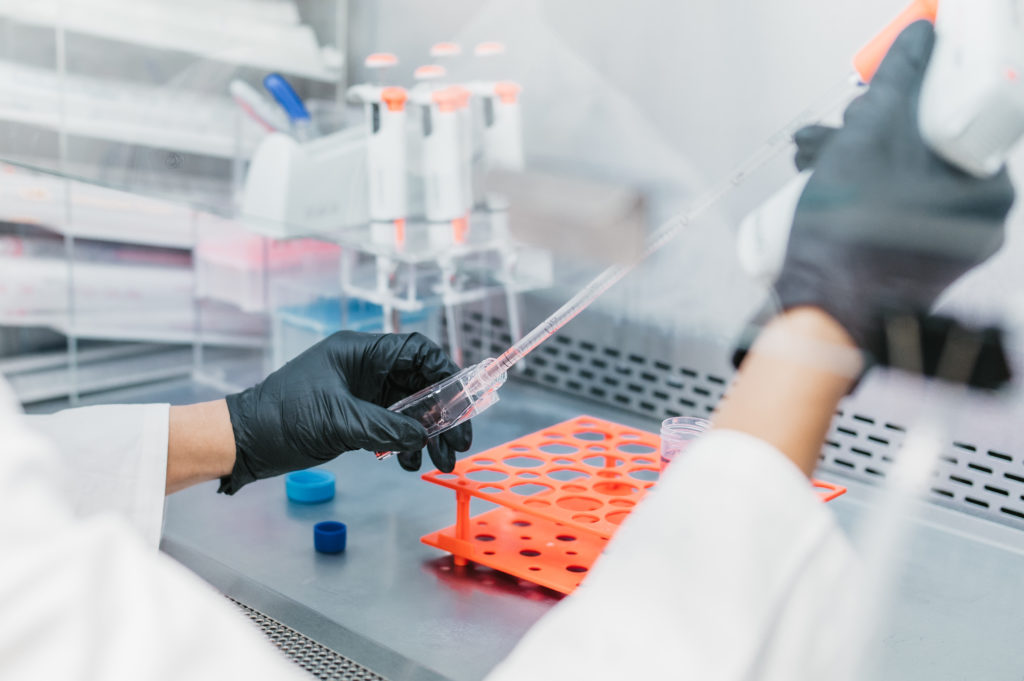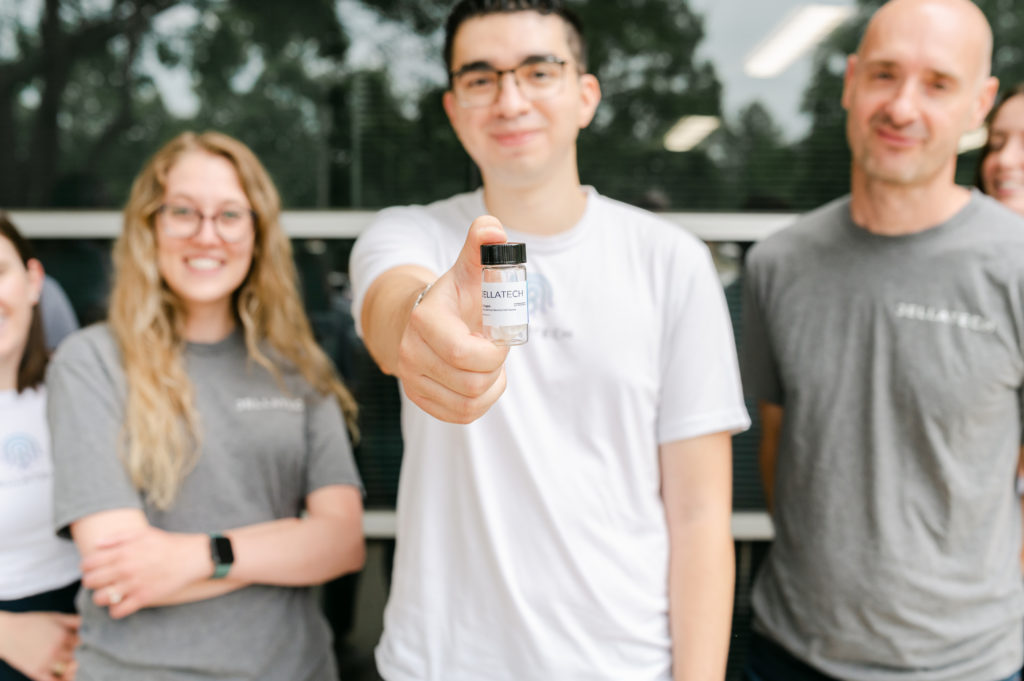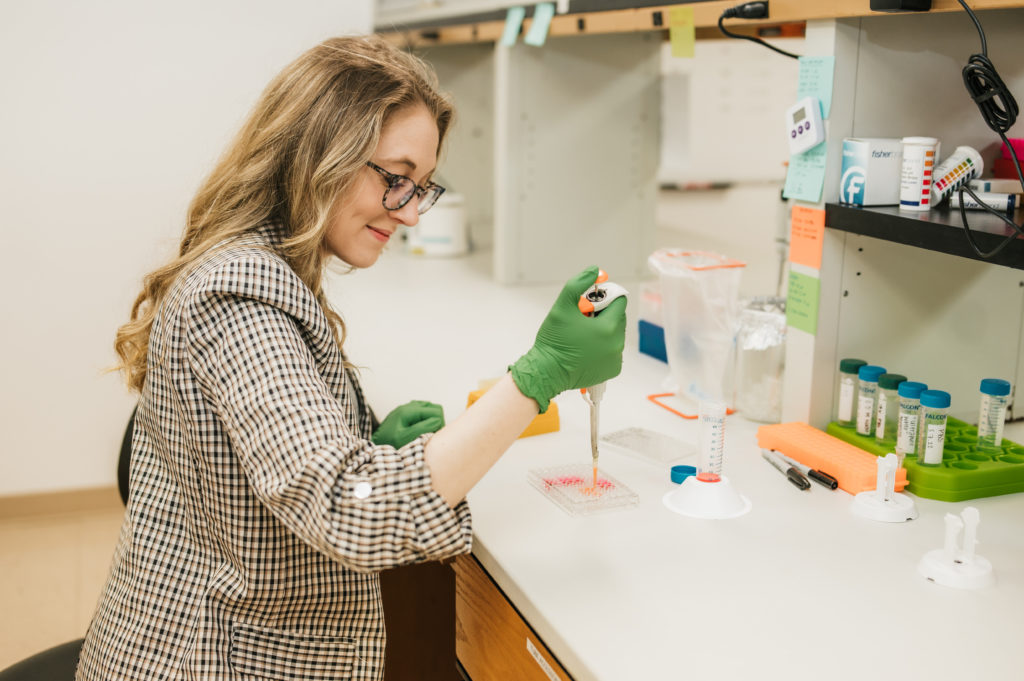4 Mins Read
Headquartered in North Carolina, biotech startup Jellatech has announced the successful production of cell-based collagen. The company, founded two years ago, claims to have created full-length, triple-helical collagen that functions identically to conventional sources. The development has been made using the company’s proprietary cell lines.
Used across multiple industries, including cosmetic, pharmaceutical, and food production, collagen reportedly contributes to an $8.4 billion dollar sector. Jellatech set out to create a clean and sustainably superior version of the protein, which doesn’t rely on animals for sourcing.

Jellatech accomplishes its collagen goals
“This is a major milestone for us and I am beyond proud and excited that we are already here. Being able to see our clean cell-based collagen with the naked eye – it brings happy tears,” Stephanie Michelsen, CEO of Jellatech said in a statement.
With consumers increasingly scrutinising the sustainability credentials of the brands they support, cruelty-free alternatives to necessary ingredients are becoming more vital. Traditionally, collagen is found in animal skin, bones and connective tissues, requiring the slaughter of said creature. Horses, cows, pigs, rabbits and fish are common sources of collagen collection. Add in supply chain disruptions caused by Covid-19, travel restrictions and other unforeseen outbreaks, including African swine flu, and a stable provision becomes hard to guarantee.
Jellatech has positioned itself to offer an alternative to conventional animal-sourced collagen. In April last year, the startup secured $2 million in a pre-seed funding round, to support ongoing collagen and gelatine R&D. The investment allowed Jellatech to send out samples of its collagen development, with a view to commercialising within 18 months. That ambition is closer than ever to being realised, with the new announcement that it has achieved bioidentical results with cell-based collagen.
“We’re thrilled to see that our cell-derived collagen appears bio-identical to collagen derived from animals. Because of this, we have a wide range of exciting applications from biomedicine to cosmetics to food and beverage,” Rob Schutte, head of science at Jellatech said in a statement.

Taking the cell-based path
Jellatech is not the only startup looking to take animals out of the collagen production system. The company states that it decided against plant-based or fermentation-derived investigations due to the limitations both have. Jellatech claims that both are unable to fully mimic the range of functionality that animal-based collagen contains, therefore its cell-based innovation is a step ahead.
“Collagen formation is a complex process that requires specialized machinery found only in mammalian cells,” Christopher Gilchrist, senior scientist at Jellatech said in a statement. “We’re working to harness the innate ability of these cells to produce collagen that is bio-identical to native collagen and do it in a sustainable and animal-free way.”

The race for cruelty-free collagen
In February, biodesign startup Geltor announced it has successfully completed its first commercial run of fermented animal-free collagen. Dubbed PrimaColl, the vegan product was manufactured in partnership with Arxada to test scaling capabilities. The company reported no loss of precision, with all produced PrimaColl being hailed as a bioidentical alternative to animal-sourced collagen. Despite announcing a capacity increase from 10,000 litres in 2019 to millions in 2021, The company states that it has a long way to go to replace the conventional protein, which currently sees kilotonnes of demand every year.
In March, Israeli cultivated meat innovator Aleph Farms revealed it is adding cell-based collagen to its portfolio of developments. The move forms part of the company’s commitment to replacing all bovine proteins currently used commercially, in a bid to offer a sustainable alternative to animal farming. An in-house incubation accelerator, dubbed Aleph Frontiers, looked into the potential for collagen as part of an 18-month stealth investigation, with the results being favourable. 2024 has been floated as a potential launch date for finished collagen products.
All photos by Jellatech.





